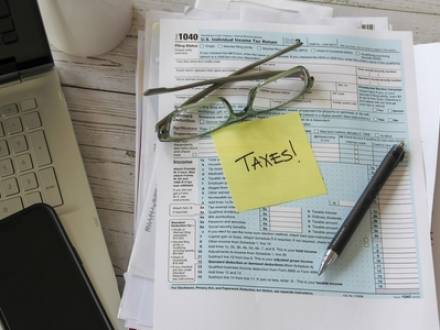Why Early-Year Chapter 7 Filings Risk Losing Tax Refunds
 Tax season is one of the busiest times for bankruptcy attorneys, but for some Maryland debtors, filing a Chapter 7 bankruptcy too early in the year can result in a costly surprise. Since Maryland’s wildcard exemption has a strict dollar cap, a large tax refund may exceed what you can legally protect, resulting in the loss of your tax return to the bankruptcy trustee.
Tax season is one of the busiest times for bankruptcy attorneys, but for some Maryland debtors, filing a Chapter 7 bankruptcy too early in the year can result in a costly surprise. Since Maryland’s wildcard exemption has a strict dollar cap, a large tax refund may exceed what you can legally protect, resulting in the loss of your tax return to the bankruptcy trustee.
Because of this, filing bankruptcy between January and March when you are expecting a sizeable refund can be risky – especially if you have earned-income credits, child tax credits, or multiple W-2 withholdings. It is extremely important that you fully understand how the wildcard works in Chapter 7 bankruptcy and how timing can potentially protect your refund. Your best course of action is to speak to an experienced Montgomery County Chapter 7 bankruptcy attorney to determine the best time to file.
Why Are Tax Refunds Considered the Property of the Bankruptcy Estate?
Tax refunds are considered over-withheld income that was earned prior to filing for bankruptcy. Even if the tax refund has not yet been received, it is considered an asset. The U.S. Bankruptcy Code defines the "estate" broadly to include all the debtor’s property, assets, and interests at the time of filing, regardless of when the physical cash is received.
As such, trustees are entitled to seize any non-exempt portion of the tax refund. A tax refund may include multiple components, such as the federal income tax refund, Maryland state refund, Earned Income Tax Credit (EITC), additional child tax credits, and stimulus/offset credit adjustments. All of these components are subject to exemption limits.
What is the Maryland Wildcard Exemption?
The Maryland bankruptcy wildcard exemption is $6,000 in total, covering all personal property not protected elsewhere. This can include:
- Cash
- Jewelry
- Electronics
- Household goods
- Venmo/CashApp
- Bank balances
- Expected tax refunds
Tax refunds often exceed the wildcard amount, especially after household items, cash, and checking account balances are factored in. Once the wildcard cap is reached, the trustee can take the remainder of the refund. So, if a debtor had $4,200 in cash, a checking account, jewelry, electronics, and household items, and was expecting a tax refund of $5,000, only $1,800 of the tax refund would be protected, with the trustee taking the remaining $3,200.
Why Filing for Chapter 7 Bankruptcy After You Receive Your Tax Refund Makes Sense
Before receiving a tax refund, the debtor is unable to pay rent, utilities, car repairs, replace broken essentials, pay insurance costs, catch up on medical bills, or even buy groceries because he or she does not have cash on hand. Yet these are all allowable, legitimate, pre-bankruptcy expenses. If you file after you receive your refund, you can use it to pay for necessities. The refund should never be spent on luxury items, as this places the debtor under fraud scrutiny and trustee clawbacks.
The refund should be used only to fix problems that Chapter 7 won’t solve, such as replacing worn-out tires on the family car, making necessary home repairs, bringing car insurance current, paying DMV fees, or catching up on other necessities. Once the tax refund has been properly spent, a Chapter 7 bankruptcy can be filed, and the wildcard exemption can be used to keep necessary household items and cash.
Trustees can intercept the refund directly from the IRS or Maryland Comptroller or require the debtor to turn over the refund as soon as it is received. Failure to turn over the tax refund can jeopardize discharge, lead to motions to compel, and result in dismissal of the case.
Contact a Prince George’s County, MD Chapter 7 Bankruptcy Lawyer
Filing Chapter 7 in Maryland before your tax refund arrives can be a costly mistake. If you are considering filing bankruptcy early in the year, be sure to speak to a knowledgeable Montgomery County, MD consumer bankruptcy attorney from Bloc One Services, LLC. Attorney Blocton can help you time your filing, maximize exemptions, and protect as much of your refund as the law allows, while providing you with quality legal services at a fair price. Call 240-200-0076 to schedule your free initial 30-minute consultation.




